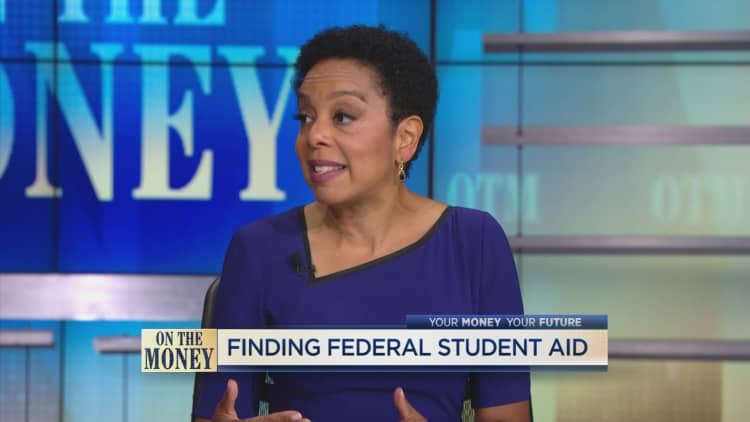A federal court has just handed Harvard's affirmative action admissions policies a big win. But everyone who really cares about fixing America's very real educational opportunity problems just lost.
District Court Judge Allison Burroughs ruled Tuesday that Harvard doesn't discriminate against Asian-Americans in a case brought by Asian-American applicants that was backed by the Trump administration. That's despite records that showed many Asian-Americans who outperformed most applicants on standardized tests and grade point averages, ended up being rejected by Harvard because they scored poorly on the school's more arbitrary personal ratings system.
The plaintiffs are already promising to appeal to a higher court, and many legal experts believe the case is likely headed to the Supreme Court.
The affirmative action debate in this country has a long and controversial history. But one thing that isn't in doubt is the fact that educational opportunities and positive outcomes are indeed limited in black and Latino communities. We can debate the causes, but the facts are sadly indisputable.
That's why this part of Judge Burroughs' decision should haunt everyone who really cares about improving those educational opportunities:
"Harvard has demonstrated that no workable and available race-neutral alternatives would allow it to achieve a diverse student body while still maintaining its standards for academic excellence."
That's right, folks. The judge said that Harvard and its $39.2 billion endowment can't do any better than conjuring up that personal ratings system to do its part in alleviating the very real racial disparity in American educational opportunities. With all due respect to the federal court system, we don't need a series of legal appeals to laugh at the absurdity of that part of the decision.
Whether you support or oppose affirmative action, the policy is almost literally the least these schools can do. Even if you could make affirmative action fairer, you'd still have the problem of an educational disaster hitting black, Latino and some other groups beginning at the preschool level. The Harvards, Princetons, Stanfords, and Columbias are getting off way too easy by simply using affirmative action to admit a select few 18-year-olds.
But let's take these schools at their word when they say they are compelled to fix the educational disparity problem. If that's true, they truly do have another alternative: start sooner!
It's ludicrous to wait until college application time to suddenly hope to fix 17-plus years of educational malpractice and mediocrity. So why not use some of those massive multi-billion-dollar endowments at these schools to set up a series of top notch K-12 schools in the poorest and most disadvantaged neighborhoods in America?
Don't worry, Ivy League administrators, I've crunched some of the key numbers for you. Let's start with Harvard and that $39 billion endowment. Let's say the university set aside just $1 billion of that endowment to create 10 K-12 private schools with free tuition for children living within a 5-15 mile radius of the 10 most underprivileged neighborhoods in America.
How far would that $1 billion go? Consider that perhaps the most elite prep school in America, Phillips Exeter Academy, has annual operating costs of $97 million per year. Exeter has 1,100 students, most of them living and boarding in somewhat lavish dormitories and enjoying even more lavish academic and athletic facilities that rival any elite college in the world.
Without dorms and the rest of those amenities, and maybe by paring down total enrollment at each school, Harvard could probably cut down the costs to $20 million or so per year per school. That means it could operate all 10 schools for five years with that $1 billion before it even gets a penny in the many donations such an endeavor would surely attract from Harvard's rich and powerful alumni.
Even better, those schools would churn out hundreds of qualified college applicants that Harvard or its many peers could more effectively admit each year.
Before you laugh at all of this, remember that these universities, which are supposed to be all about education, have already been beaten to the punch on this idea by outsiders in the educational field like Jeff Bezos. The Amazon founder and CEO is working to launch and operate a network of schools nationwide.
But to do this, America's top schools would have to wean themselves off a system that allows them to appear to be charitable and caring at very little cost to their bottom line.

As shown in a brilliantly argued and researched 2018 blog post by MIT graduate and tech entrepreneur Conrad Bastable, the top endowed universities in America are getting much more revenue from their investment returns than tuition income. Bastable also explains that keeping the sticker price of tuition high and offering varying levels of financial aid to defray that cost is the way top colleges legally maintain their status as charitable, and therefore untaxed, organizations.
Thus, offering admissions slots to often poorer minority applicants may be more about the money than alleviating educational disparities or creating a diverse campus community. Asian-Americans, who are now the highest earning demographic group in the country, may be more disadvantaged in the college admissions game by their wealth than their ethnic background.
Affirmative action is such a relatively easy and cheap way for our top universities to appear concerned about minority students that it barely beats the "effort" it takes to post your average virtue-signaling post on Facebook.
For those of us who believe in what affirmative action is actually supposed to achieve, this alternative is clearly better and long overdue.
Jake Novak is a political and economic analyst at Jake Novak News and former CNBC TV producer. You can follow him on Twitter @jakejakeny.


